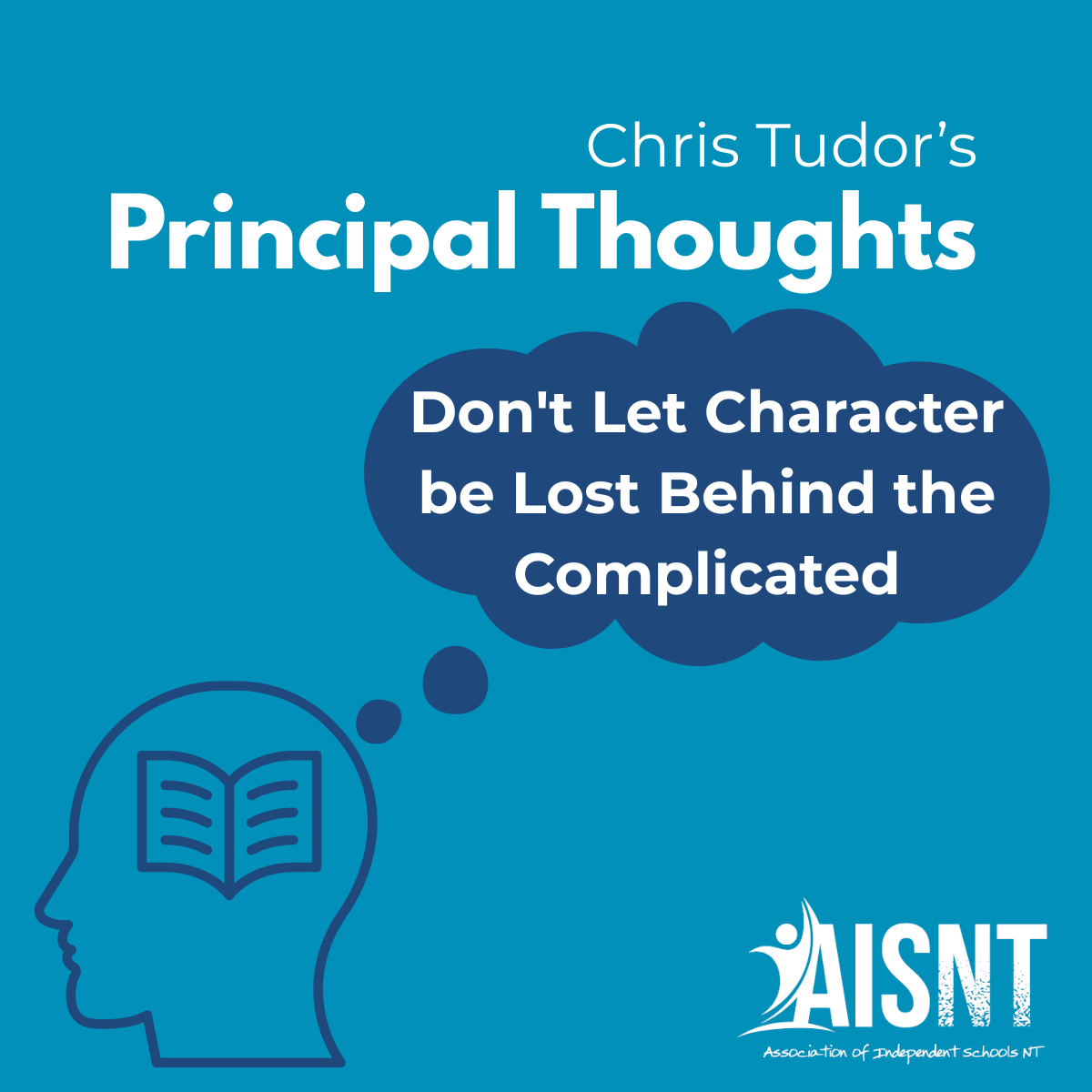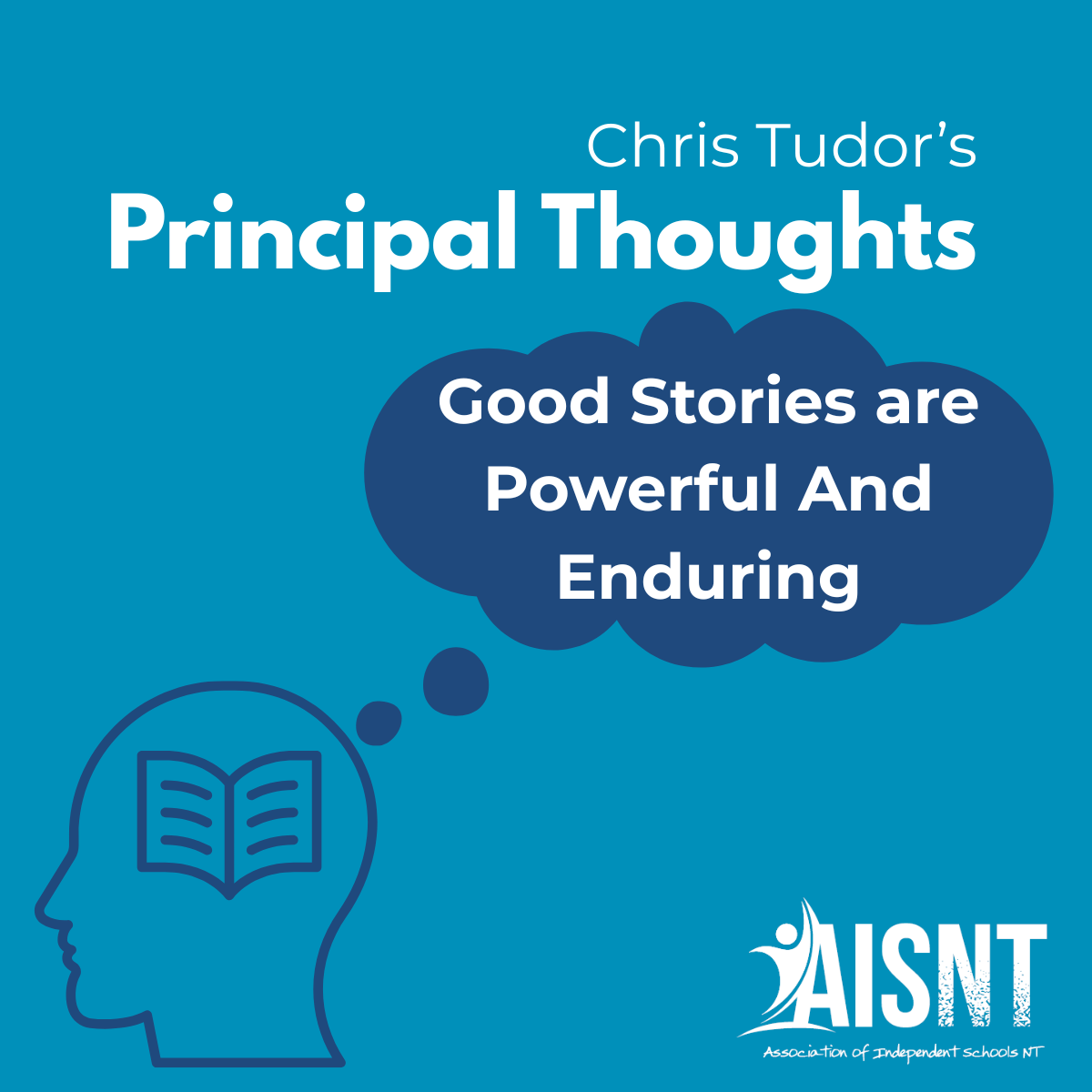Stimulating Thought
A capable teacher’s ultimate hope is that though they may be successful engendering knowledge in students, they would also wish to stimulate thought. In any lesson the thoughts which may be created will perhaps vary from student to student, given that all students are different. What is a sign of success is that thought has been stimulated. Obviously a teacher hopes to build on those thoughts but the journeys for students to a desired end point may be navigated in many different ways.
I enjoy teaching my oldest grandson (9) various aspects of history which interest him (important point) - he will say, “Come on Grandad let’s have a history lesson”. We have great discussions but, at my time of life after years of teaching, I have learnt to listen more rather than simply telling. This was an exciting revelation, prompting me not to push on with the lesson or story but to have a conversation with him about where his thinking was at. If I just soldiered on regardless I’m sure he would begin to lose interest, though he may not tell me. When I started teaching him the guitar I initially pushed on with 20 minute lessons seeing this as the tried and tested route to mastery. Covid caused a break in the lessons as I was marooned in Victoria. On returning to Alice I started lessons again. This time I thought I would try short 3 minute lessons perhaps 2 to three times a day. The change worked beautifully and his enthusiasm wasn’t sapped by lesson drudgery or boredom. He started to progress faster and soon we were playing tunes together which was such a thrill for me.
I hope this intro promotes thought in you as the leader of classroom teachers though I know well the challenges produced by timetables, bells and 25 students in a class. However I think it’s really good for a Principal to think philosophically and to consider what could be adapted to the normal school setting, if possible.
Year 9 history, when I was at school, was based around the ancient world, and supported by English books such “The Walls of Windy Troy”, the story of archeologist Heinrich Schliemann, by Marjorie Braymer. I didn’t mind this book, but the history text became an unnecessary mystery because, though filled with knowledge it was exceedingly uninviting and boring for one who was normally an enthusiastic student. I’m sure that many other students thought the same. My understanding of these ancient times have since come from more succinct writings, TV shows, movies where one was stimulated to enquire “is that really true?” The students of today are really fortunate because they have access to the internet and its abundance of information. Obviously effective students will learn how to use this in a beneficial way.
Recently I watched “The Treasures of Greece” on SBS presented by British historian Bettany Hughes OBE FSA. She is a very effective presenter and holds an Honorary Doctorate from York University. She has taught at Bristol, Manchester, UCL, Oxford and Cambridge and is a research fellow of Kings College London. Certainly she has video footage of the places she is presenting, but the show only goes for 49 minutes. However she captures ideas simply, briefly and in very communicative ways. From her entertaining presentation I was drawn into grabbing my phone and looking up enthusiastically on the internet, not everything, but the parts that grabbed my interest, which was about the Greek’s approach to society, particularly education. I believe good teaching can also result in the same outcome. One of the weaknesses in some traditional testing is that the knowledge and ideas a student wishes to explore my not be found in the questions on the test. The more students can have control over their learning the better and the more enthusiastic they will be.
What really caught my attention was her brief presentation on the amazing 14000 person theatre at Epidaurus, built in the late 4th century BC. This beautiful theatre, with its outstanding acoustics and aesthetics, was not for barbaric gladiatorial events but was rather for music and drama. By this stage the Greeks had a holistic approach to life and health. They believed that you can’t have a healthy body without a healthy mind. The philosopher Aristotle observed that when people come together and listen to music and drama the result is “cathartic and healing, a purge and balm for society’s soul.” The Greeks observed that the viewing of drama has a positive effect on those suffering mental and physical health issues. My mind absorbed Bettany’s simple but “pithy” statement that “Greece was the bedrock of civilisation and changed how the world thinks.” Incidentally Aristotle was Plato’s pupil and Plato was taught by Socrates. Aristotle went on to become the very well paid tutor of Alexander the Great. Incidentally (in class students often enjoy random deviations from the topic) he went on to conquer huge areas of the world as a young man, dying sadly at the age of 32. This great Macedonian leader met his end in Babylon.
Bettany makes this observation about the Greeks’ approach to health and wellbeing and indeed education saying that today many educators see such an approach as revolutionary. However the Greeks promoted it some 2500 years ago. As she observes, so much can be learnt from the past.
I have written in my articles previously about the famous, very effective and revolutionary educator Kurt Hahn. To remind readers, he founded Salem School in Germany, Gordonstoun School in Scotland, The Duke of Edinburgh Award Scheme The Outward Bound movement, helped found The United World Colleges, amongst other achievements. Hahn had a deep appreciation of Ancient Greek ideals particularly those of Plato, which articulated that education should be aimed at producing a complete person - intellectually, morally, aesthetically and physically. To this can be added thinking which will be stimulated by Socratic questioning.
Hahn loved to read and learn but he hated his school. He referred to the school (gymnasium) he attended in Germany as a “torment box”. It was an authoritarian place directed at high achievement in the “big test” called the Abitur. Sufficient good grades would enable entrance to university. Hahn did not want to start schools which were oppressive, but rather enlightening.
The hope is that the schooling students’ receive will produce a lifelong love of learning complete with a thirst for knowledge and ideas. Furthermore that it will foster creative thought with a very healthy propensity to analyse and generate satisfying conclusions. May students appreciate that learning is not a straight line which everyone follows but is rather like a spreading River Red Gum with students following different branches on their journey to the top, but also feeling comfortable that where the top for one is may not be the same as for another.
Chris Tudor,
Principal Liaison & AISNT Historian



